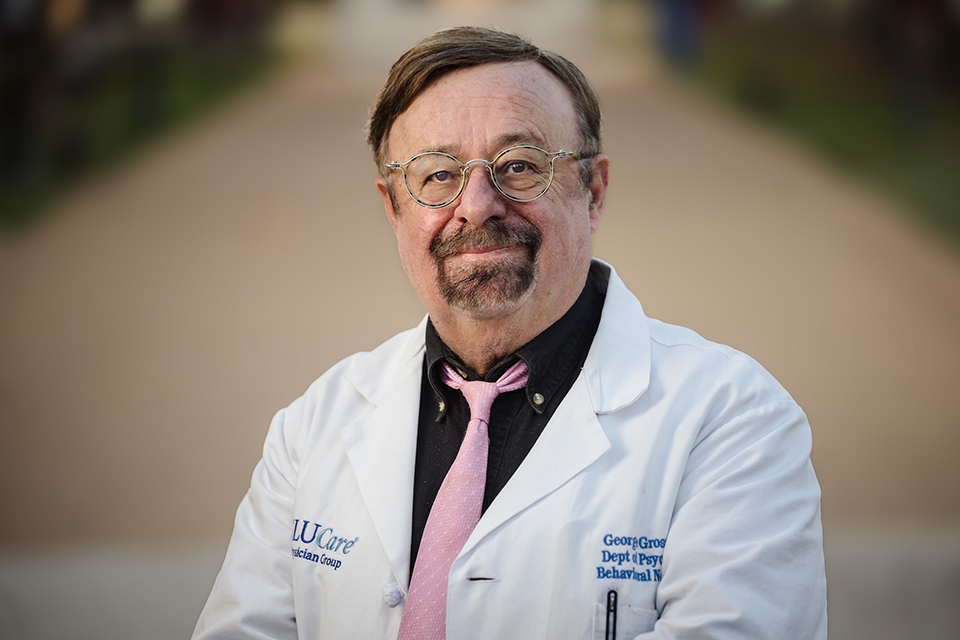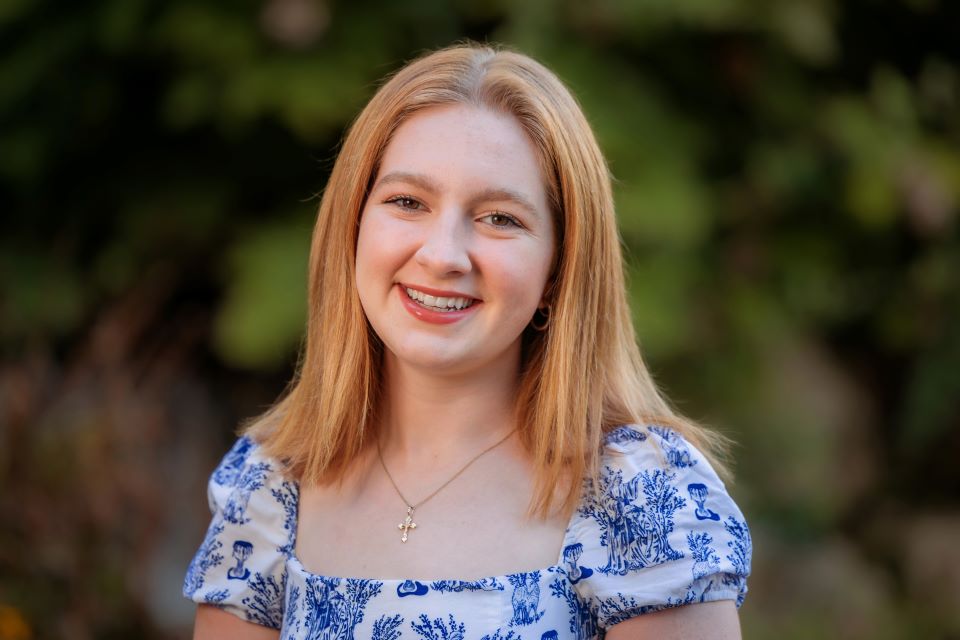IPA Honors George Grossberg for Distinguished Service to the Field of Psychogeriatrics
ST. LOUIS —George Grossberg, M.D., is a recipient of the 2023 International Psychogeriatric Association’s (IPA) Distinguished Service to the Field of Psychogeriatrics Award.
Grossberg, the inaugural Henry & Amelia Nasrallah Endowed Professor and Director of Geriatric Psychiatry at Saint Louis University, was also honored in 2019 for distinguished service to the IPA. For more than 30 years, the IPA has been a leader in the field of older adult mental health. The awards recognize exemplary professionals who have devoted their leadership and efforts to serving the organization and field.

George Grossberg, M.D. Photo by Sarah Conroy.
Grossberg has been a leader in developing mental health programs, treatment and research in geriatrics. He was one of a handful of people to petition the American Board of Psychiatry and Neurology to officially establish the field of geriatric psychiatry as a subspecialization in psychiatry and to provide a means of identifying properly trained and experienced geriatric psychiatrists.
Grossberg specializes in Alzheimer’s disease and other dementias, late-life depression, delirium, psychiatry in the nursing home setting, and geriatric psychopharmacology.
Past research includes a multi-center Phase II/III clinical trial that tested the safety and efficacy of an investigational drug’s ability to slow the decline of brain function and possibly delay or prevent Alzheimer’s disease in those at risk for Alzheimer’s disease who do not yet have symptoms of the illness.
“This is the new trend: to try to catch it as early as possible and provide intervention,” he told St. Louis Magazine. “One of the things we’ve learned isn’t so much that we had the wrong medications but that we had the wrong targets. We intervened too late.”
Latest Newslink
- Kathryn Mitchell Pierce, Ph.D.: 1955-2025Kathryn Mitchell Pierce, Ph.D., associate professor of educational studies, died Wednesday, Dec. 10, 2025. She was 70 years old. Pierce joined Saint Louis University in 2015 as an assistant professor in the School of Education. Initially a literacy specialist in the undergraduate program, she eventually taught and mentored across all levels at the School of Education. She became an associate professor in 2022.
- Saint Louis University Student Speaks About Leadership and Disability at Ignatian Family Teach-In for JusticeSaint Louis University senior Grace LoPiccolo shared her personal leadership journey at the 2025 Ignatian Family Teach-In for Justice. The event, held annually in Washington, D.C., is the nation’s largest Catholic social justice advocacy day.
- SLU Research Shows Surge in Alcohol-Related Liver Disease Driving ‘Deaths of Despair’Researchers at Saint Louis University School of Medicine say deaths from alcohol-related liver disease have surged in recent years, and the increase is hitting people without a college degree the hardest. While nearly every demographic group is seeing higher death rates—including those with college degrees—the gap between economically disadvantaged groups and more affluent ones is growing, according to new research.
- Saint Louis University Joins Multi-Disciplinary Research Team to Enhance Stress Resilience in SorghumSaint Louis University is part of a multi-disciplinary team, led by the Donald Danforth Plant Science Center, to deepen the understanding of sorghum, a versatile bioenergy crop, and its response to environmental challenges.The U.S. Department of Energy (DOE) Biological and Environmental Research (BER) program supports the three-year $2.5 million project for Genomics-Enabled Understanding and Advancing Knowledge on Plant Gene Function. Saint Louis University will receive $437,039 for its portion of the study.
- SLU Graduates Celebrated at Midyear CommencementSaint Louis University celebrated its Midyear Commencement on Saturday, Dec. 13, inside Chaifetz Arena. More than 1,900 guests watched as 600-plus SLU students walked across the stage and left as graduates.
- Why Do Raccoons Cross the Road? SLU, St. Louis Zoo Research Shows They Don'tA new study led by researchers from Saint Louis University, the Saint Louis Zoo, and partner organizations set out to understand how raccoons use space in one of the nation's largest urban parks.













